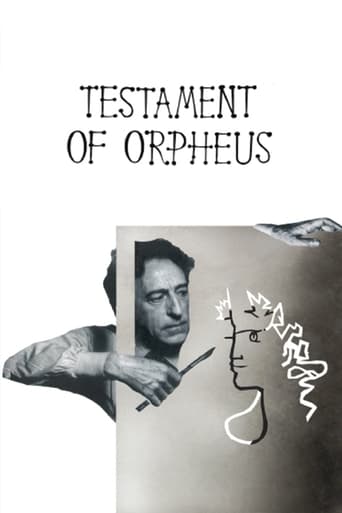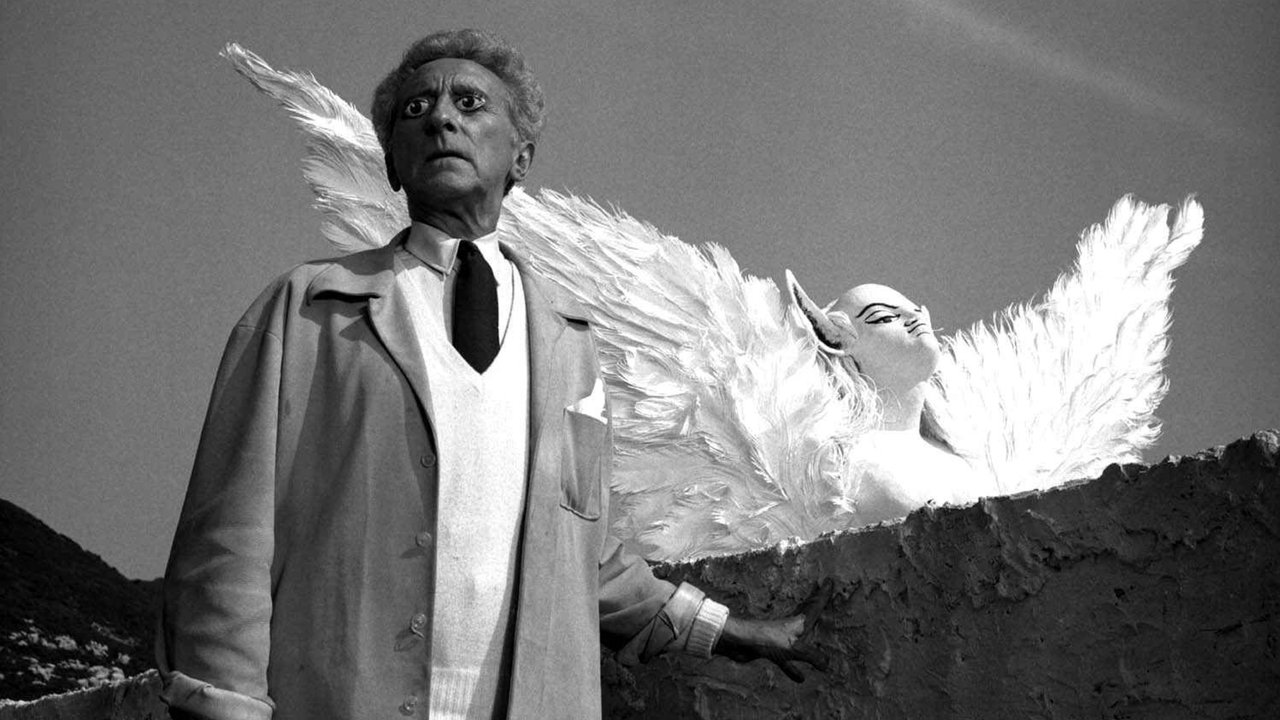Vihren Mitev
As I stared at Picasso, he stared at me the same way. But let's not start browsing the newspaper by reading the sports news. This is the last film of Cocteau, film, marked by the built in time style and it constitutes a legacy of Orpheus, the way it is will or inheritance, if you will, of the director himself.As the third part of the trilogy, it is the walking of a full circle in the human being done in two ways - on a personal level, from childhood and the first life, old and last life and historically, from mythology to science and modernity. On foreground is the idea of the fateful moment in our existence, the intersections of our past, present and future existences, still seeking their own sense separated from one another, and the constant questioning of the miracle of the human presence. Poetry and science, holding hands, are grinding up to interfere in the mysteries of the mythological story. Their results are not greatly productive, but they are and give comfort to those who have been vocated to them. We are shown the most severe a burden and that is to being a judge of others and instead of indulging in space-time, to get security logic and predictability. Somewhat Kafkasian, those who stand before the law, are waiting their trial. The director shows his ability to see the development of different actions and characters in a long time plan, and also provide his place into them.The development of action shows us that more important are the desire and ability than the effect and power of cash rivers. To such titles we can turn only to sigh, because they are uttered as pieces of rock of the time and the history of cinema that are long forgotten and kicked out of the way of modern man that took a sharp turn, passing them with their topless cars.http://vihrenmitevmovies.blogspot.com/
Eumenides_0
Jean Cocteau's last movie is a lovely parade of fascinating images, concepts and characters. Playing the The Poet, his alter ego, Cocteau reflects about his work as a filmmaker, visual artist and poet. In a self-reflexive move, he references his previous movie, Orpheus, and openly addresses the creation of cinema. We're given a window into which we can look at Cocteau's inspiration and creativity. The sets are clearly sets and the characters are described as no more than inventions by him. This is meta-cinema, before Dogville, Day for Night, Persona and Otto e Mezzo.It's also a visual feast of fantasy. Cocteau had a surrealist streak and fills this movie with images that could belong in anyone's dreams: people dressed up as horses, which is not as silly as it sounds; cadaverous masks; a clever use of reverse motion to show time running backwards, which I presume is how the filmmaker shot the reconstruction of a flower he had just torn to pieces.Almost fifty years old, The Testament of Orpheus still looks modern and remains challenging. There are things in this movie that contemporary cinema doesn't use anymore, which is a pity; for rather than being old-fashioned, this movie still has a lot of teach to young filmmakers.
mphilipm
While I had surely seen the second film in Cocteau's Orpheus trilogy if not the first as well, I suspect I was in no position to appreciate any of what Cocteau accomplished. Now I'm about the same age he was when he did the Testament. I remember the time period for the second and third pictures, having grown up in it. But how all three of these films really transcend time as Cocteau is trying to show you works of art should! I had to rely on the subtitles for the sense of the lines but it was no matter. I don't remember anything else like these films. They are political to the extent they lobby for the poet's point of view. And in spite of the black and white and old prints their effect is most striking. Orpheus Descending and Testament sometimes look like the inspiration for Rebel Without a Cause. And Testament has some pithy comments on modern technology and the short comings of air travel that seem funnier and more relevant today. And toward the end of Testament, having the red blood and the red hibiscus in this black and white movie--how many times has that been imitated by computer technology? But it is what the poet saw then, not what technology makes commonplace and commercial today.On the discs for Blood of the Poet and Testament are two separate bonus features, documentaries of Cocteau in fading Technicolor--but oh how interesting they are as well. At some point Cocteau says it was Picasso who taught them all to see. But what a treasure trove of talent Paris produced in the first half of the twentieth century. I hope this kind of sharing of artistic discovery can take place on the internet. Maybe it is already happening and I just don't know it. But I do know people who care for serious--but not heavy and sometimes witty--artistic expression, let alone movies, should see all three of these movies and the docs which accompany them.
rogierr
There are nice ideas in this final film by Cocteau. It's a pity he made it in 1959: there had already been Bunuel's l'Age d'or (1930) and Un chien andalou (1929), Bergman's Wild Strawberries (1957) and The Seventh Seal (1957) that are all brilliant. Not to mention Cocteau's own Sang d'un poete (1930!), in which the relatively simple technical ideas of Testament d'Orphee were already worked out and even better too. Cocteau utilizes terribly slow motion and awkward backwards play. Where Orpheus was ambitious, this is mere pretentious. The acting is mediocre, despite the interesting cast (Cocteau, Brynner, Picasso). Testament is less thought provoking and less surprising than what I hoped for, but nevertheless worth a try. Perhaps I wasn't in the mood for conversations about eloquence and poetry at the time. Still it is at least as interesting as Orson Welles' F for Fake (1975) in which Cocteau also appeared so prominently.7/10


 AD
AD


